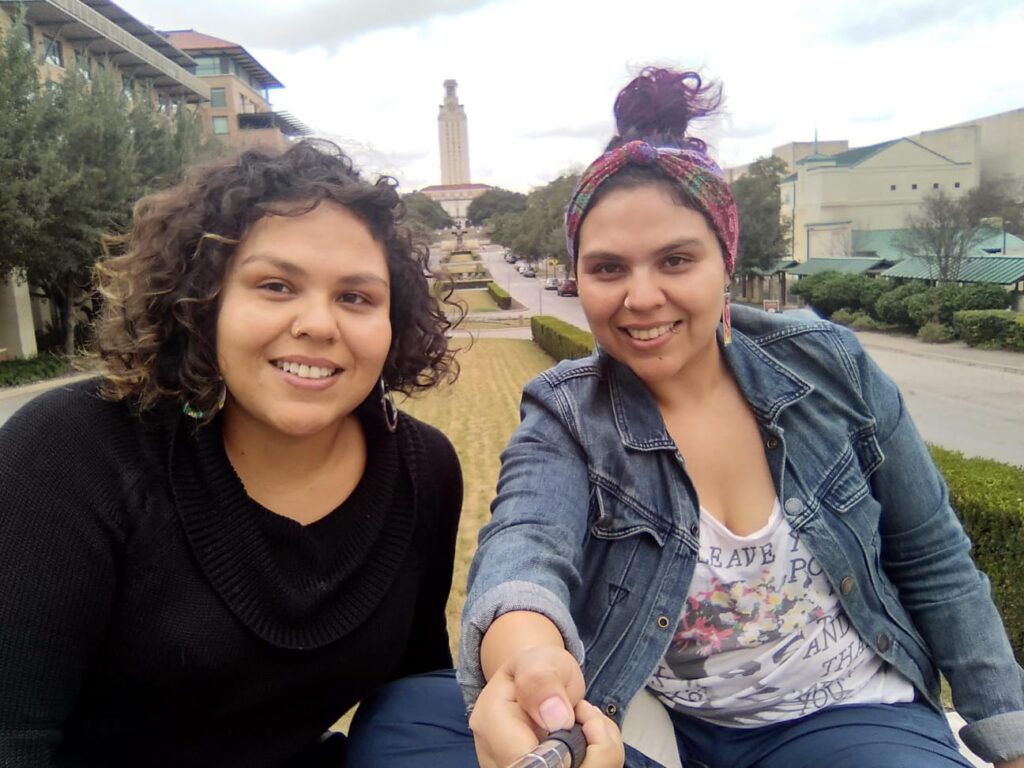
BY SUSANNA SHARPE
Olimpia Montserrat Valdivia and Fátima Valdivia are identical twin sisters from León, Guanajuato, Mexico, who are enrolled in the doctoral program at the Teresa Lozano Long Institute of Latin American Studies (LLILAS) at The University of Texas at Austin.
Fátima began the LLILAS PhD program in 2016. Trained as an attorney and a social anthropologist, she came to UT Austin after spending seven years in the Tarahumara region of Chihuahua State in northern Mexico, where she worked initially as a volunteer and eventually as a full-time legal adviser to indigenous groups. She is the co-founder of CECADDHI (Center for Training and Defense of Human and Indigenous Rights), established in 2013 to provide legal assistance to Tarahumara indigenous communities in defense of their rights. As a recipient of a Mellon International Dissertation Research Fellowship, she is conducting fieldwork for her dissertation during academic year 2019–20. (Read Fátima’s article on her research for LLILAS Benson’s Portal magazine.)
Montserrat, aka Montse, began the PhD program at LLILAS in 2017 after five years of work with at-risk youth populations on the Mexico–Guatemala border through the Mexican Commission for Refugee Assistance, the International Organization for Migration – UN Migration, and the Organization of American States. She is a Brumley Next Generation Graduate Fellow at the Strauss Center for International Security and Law (LBJ School of Public Affairs) for academic year 2019–20. In Austin, she has worked with Justice for Our Neighbors, helping asylum seekers prepare for credible-fear interviews, and is currently an Applied Geopolitics Fellow at Stratfor, advising on Latin American geopolitics and security. Her research is focused on Central American adolescents ages 13 to 17 who are, or have been, gang members, and who are searching for a way out of gang life and for new opportunities by seeking asylum in Mexico.
In this interview, the sisters discuss the people who have most influenced their lives, their path to academia, and their relationship to each other.
You are both activist scholars, academics who combine work with vulnerable people and communities with scholarly training and research. I am curious how your upbringing led you to where you are now.
Montse: I think it is my mother who brought me here because thanks to her sacrifice I became a woman who is pursuing a PhD in a foreign country. My twin sister and I are first-generation college students. No one in our family has an academic career, all my relatives are factory workers who finished only some years of primary school. My mother was the first-generation high school student in her family, where education was an expensive privilege.
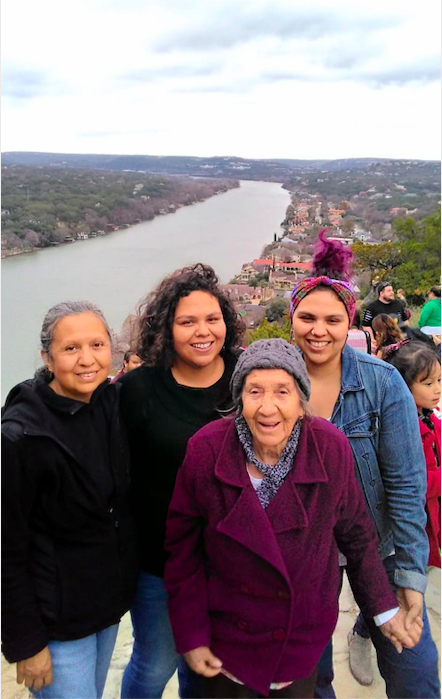
She worked at a very early age. She has memories of going to work at the factory when she was seven years old. For her, education was the way to achieve independence. Even though she only finished high school, she took care of my grandmother since she was 16 years old, then she took care of me and my twin, alone, without the economic or emotional support of anyone else. Since we were children, she always told us about the importance of empowering women through education and a professional career. She always kept us safe and she has been an example of honesty, hardworking, unconditional love, and compromise. Even though she doesn’t understand what a PhD looks like or what is it for, she continues supporting me.
Fatima: For a long time I have thought about the reasons for my life choices. My sister and I come from a humble, working-class family. We are the first to get a college degree, and among the few who even finished their basic education, so academic life was never familiar to us. Nor did activism characterize my family. My mother, as a single mother, put her daily energy into surviving and getting what the family needed to get ahead; she got her high school diploma just a few years ago. My sister and I grew up watching telenovelas next to my grandmother, who for years kept a small candy stall at the door to support household expenses. Our life then was not surrounded by slogans or books. Our life was surrounded by love, the love of struggling women, a love that disciplined our lives in generosity, that taught us to live with little, and to be sensitive to the needs of others in spite of our own. My mother is a fair woman. I always saw her wanting to do her best in any space, and that meant being a transparent, clear person who doesn’t walk over others, and who has earned everything she has on her own merit.

My mother and grandmother always taught us gratitude and generosity. For our mother, the only point of a college career was to serve others. “If you are going to pursue a profession in your life that is to help others,” she always told us. Even last year when she came to visit the University of Texas, she took a deep sigh and told us, “girls, you must feel very fortunate because no one has this opportunity.” My grandmother taught us from an early age to share the fruits of labor. At age 16, when we received our first salaries, we had to give half of them to our mother, because this was an act of justice and the first step in the multiplication of blessings. These examples of life, together with my early involvement in Catholic youth groups inspired by liberation theology, were the motivation for my choices.
Both of you have professions and work experience in your fields. What made you decide to pursue a PhD, and how will the PhD change what you do in life?
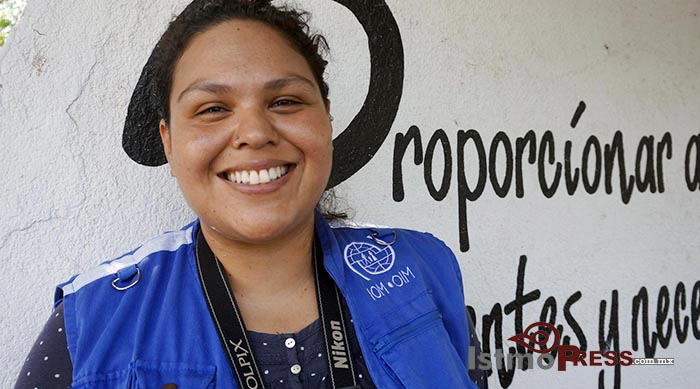
Montse: Because of the conditions in which irregular migration takes place in the region (Central America-Mexico-USA), and the social problems that emerge from this context, it is necessary to have professionals who in addition to their work in the field, can contribute to the academic production too, using their knowledge to improve the situation of the most vulnerable populations, as is the case of irregular migrants, particularly children and women. That is the reason why, even though I was doing an important job in my country, it was important to me to continue my education and to professionalize my knowledge. In the Mexican context, job offers inside the academy are scarce and with low wages; the opportunities are better when you have a graduate degree from a foreign institution.
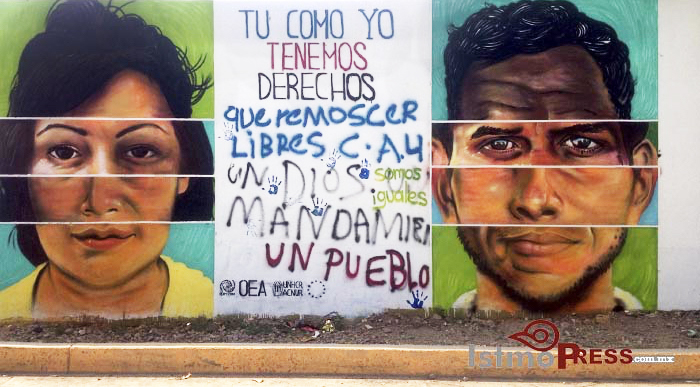
My experience at LLILAS has been wonderful since it allows me to mix academic life with activism, which is crucial because the political situation demands more activism from scholars, and also because the new generations in Mexico are not motivated to keep studying anthropology or the social sciences in general. Most of them don’t know what anthropology is or what social research is useful for, or what kind of work social scientists can perform beyond being scholars.
Fátima: The motivation to pursue a doctorate was found in my daily work in Tarahumara, and in the practical benefit I found in academic training after my master’s degree. When I did my master’s degree in social anthropology in Mexico, I suffered a lot from the academic process. Although I wanted to continue training and find tools to help me better perform my work in Tarahumara, the academy seemed to me to be false, elitist, very radicalized but not very humane, and far from the social problems that it analyzes. Although I still believe this of a large part of the academic world, after completing my master’s degree and returning to my work as a lawyer in Tarahumara, I discovered that my gaze had changed. The academic process had given me the opportunity to be critical of my own work and to improve it. My perspective on working with indigenous rights had evolved, I had evolved. This was the basis for apply for a PhD program three years after completing the master’s degree. For me, it does not make sense to study one postgraduate degree after another without seeking work experience outside the academic bubble. It is work experience that has pushed me to look for other work tools, some of which I have found in the academy.
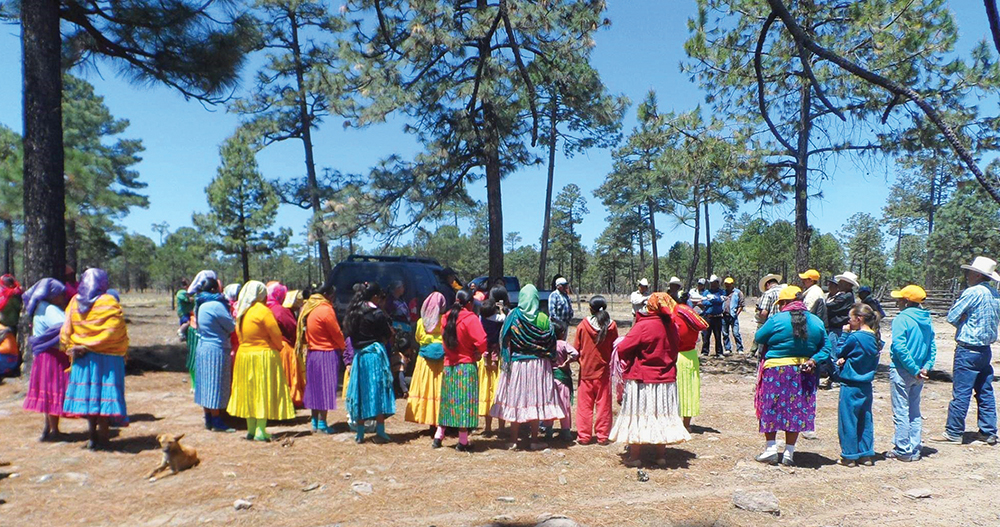
After the master’s degree, I learned of the doctoral program at UT, but at that moment I decided that I didn’t need it. I wanted to go back to work in Tarahumara and did so for three more years. While on that path, the issue of violence in the region, derived from drug trafficking, became more evident to me. It was the recurring topic at every work meeting. I began to realize that none of us working in the region had delved into the subject, even though we were constantly looking for answers. That’s how the idea of the doctorate was drawn in my mind. We needed to understand better what was happening with drug trafficking in the region, and then think about concrete actions. I felt that this task was worth investing five years in a doctorate and that’s how I got here.
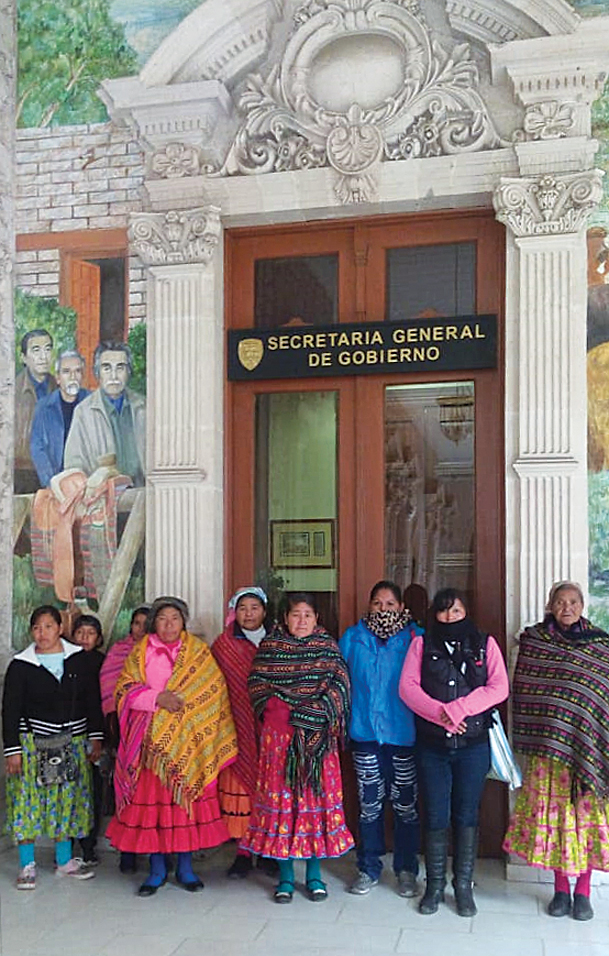
The doctoral program, however, has been more than that. I have without doubt been able to understand many things about drug trafficking and the framework of domination n which it is anchored. At the same time, I have been able to collectivize these individual lessons in the region during each vacation period in which I return to work at the organization of which I am a part. But this doctoral program has been a life lesson. Both the contents of what I have learned and the wonderful people I have had access to at UT Austin have transformed my vision of the society around us and of myself. The intellectual benefits have been the least, and the least important to me. The doctoral experience has confronted me with my intellectual and political egos, my prejudices, my intolerance and sterile radicalism, my limitations of all kinds. The doctorate has made me grow as a woman.
What was your relationship like with your sister when you were growing up? Did you have similar interests? Different interests?
Montse: I remember my childhood full of love and smiles thanks to her, and thanks to her I also never felt alone. I have to say that it wasn’t always a harmonious relationship. During adolescence above all we fought over almost everything, haha! Adolescence was a hard stage of life, and even though being twins is a wonderful experience, it is also a hard one in terms of defining your identity and avoiding toxic comparisons from relatives and friends. However, we love each other so much, and although we have very different personalities we have similar interests and values.
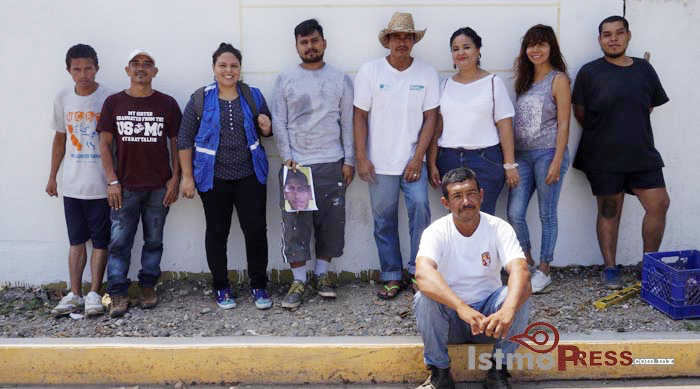
I think the fact that we both studied anthropology, I from the bachelor level and Fátima as a master’s degree, and that we are in the same PhD program, tells you how similar we are in terms of professional interests. I think the difference is that we are focused on different subjects for research and activism, and she enjoys academia a little more than I do. She would love to become a professor, for example, and I have pretty little interest in academic life.
Fátima: Our relationship as twin sisters has been a wheel of fortune, a magical experience, but also a hard one. Comparisons, expectations, the lack of individuality in common circles are things that mark our relationship, that make it complex. Together or separately we have learned to deal with and solve these challenges, and I think we have done well. Despite our physical resemblance, and our current professional affinity, we are very different people. Like all siblings (I think) we have interests in common, like the option of working on behalf of people in oppressive situations (she, people in migration; I, indigenous people). But in other things we have had very diverse options; for example, while I was studying law, she studied visual arts, then photography, then anthropology. We had separate lives, different friendships, although I actually think we were following in each other’s footsteps. We both got married in the same year, and we’re in the same doctorate, so I think we’re still developing life together.
If you think about your twin sister, how has she influenced your path in life and the person you are today?
Montse: I have always felt that she is half of my heart, she is my soulmate, so she is definitely an important part of who I am as a person. I have always admired her, her strength, assertiveness in making decisions, her intelligence and her lovely heart. She has always been braver than I am, so she inspires me to try new things, as was the case of this PhD. She came here first, she told me about the program and encouraged me to apply.
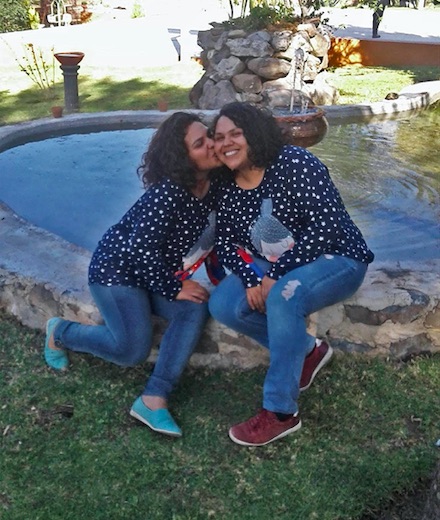
Fátima: Montserrat has been an example of kindness to me. She has always had a generous heart, and a deep commitment to attend to the suffering of others. When I get lost in my ego, she always makes me put my feet on the ground, reminds me of what is important, reminds me where we come from and to whom we owe ourselves. She is a true feminist, an exceptional woman who has gone through a lot and matured in hasty steps. Growing up with Montserrat has taught me to love, to care, to share, and to protect. She has been a life teacher for me.
Through Montserrat I arrived at anthropology, she was the one who showed me the call for the master’s degree thinking that I might be interested, and she was the one who practically handled my whole admission process since I was in Tarahumara with very little access to the internet.
What is it like for you to be in the same PhD program? Are you very independent from each other, or do you lean on each other for support (or a little of both)?
Montse: I think both. Being here as a family, not only with her but with Jorge my husband, who also is a PhD student at LLILAS, has been a big support for the three of us, in economic and academic terms, too. We always discuss academic subjects, and support each other as needed. However, I’m a loner in terms of work; I don’t usually share or talk about my job. It was also an interesting experience before the PhD. We were living in different places in Mexico: she was at the northern border and I at the southern border of the country, and it was like that for years. When I came to Austin, I started to be confused with her by people after a long time in which this did not happen. Even teachers have confused me with Fátima in class, and asked me about her research topic, thinking that I am her. Since I know Fátima’s research topic well, I never out professors for their mistake, I simply answer their questions.
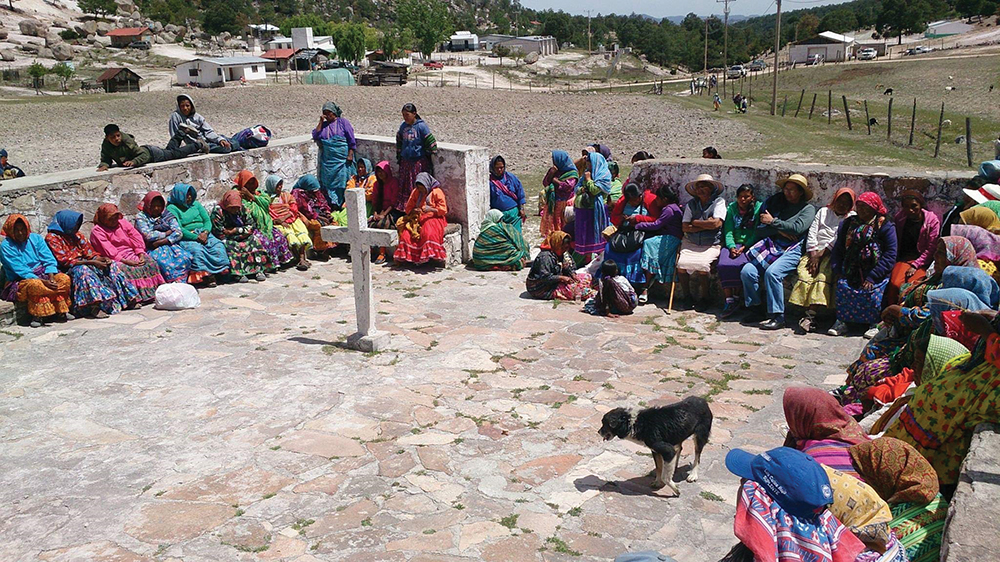
Fátima: In the doctoral process we share a lot. While everyone has an independent topic and their own perspective, as well as networks, we are usually discussing topics, and giving each other references.
What people have had the biggest influence in your life and career?
Montse: Professionally, I have a professor from my hometown university, Universidad de Guanajuato Campus León, Dr. Maricruz Romero Ugalde, who has supported me since I was an undergrad, and I´m very thankful to her. Currently, feminist professors such as Dr. Rebecca Torres, Dr. Caroline Faria, Dr. Christen Smith, and Dr. Gloria González-López inspire me a lot, they blow my mind with their intelligence and I’m very grateful to have the opportunity of knowing them and learning from them. In life outside of the university, I have to say again my mother and grandmother. They don’t know anything about academia or feminism, but they have taught me the strongest sisterhood and love there can be among women. And of course, Jorge, my husband, has also been a big influence on my career and life; he is my best friend and intellectual inspiration. I wasn’t sure about doing a PhD, but he encouraged me to take this new adventure together, and here we are, learning, being partners and colleagues.
Fátima: My mother, grandmother, and sister are the ones who have most influenced my life choices, of which my professional practice is a part. Aside from them, there are many people who have crossed my path and left me great gifts, including the people I work with on a daily basis in Tarahumara. But I would like to take this opportunity to acknowledge the presence of Mrs. Julia in my life.
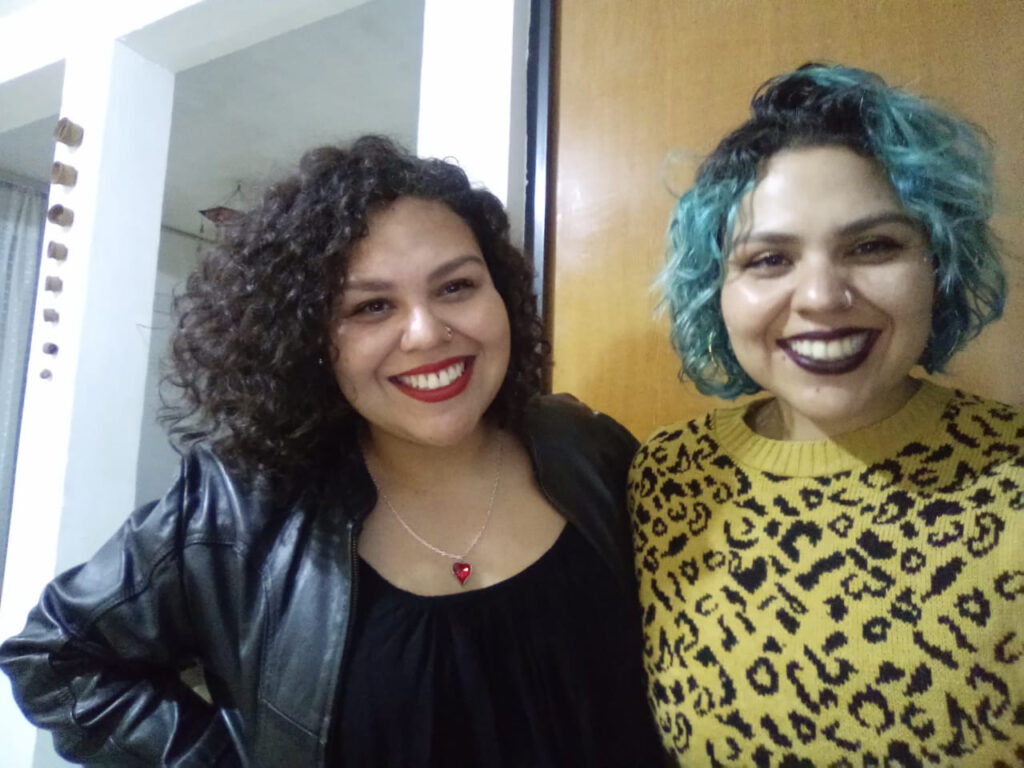
Mrs. Julia was an old lady whom Montserrat and I met in our hometown of León, Guanajuato. We were both sitting on the bus that would take us home when Mrs. Julia got on the bus carrying a big sack. Montserrat gave her the seat and then we traveled together. She told us she collected food that the markets discarded, and asked for money to be able to use the bus, as her sons had long since given up on her. During the conversation I asked for her address, and a week later Montserrat and I set about looking for her. We found that she lived in a vacant lot, where she had a small room made of cardboard sheets, and where she had to enter crouching down because it was tiny. We committed ourselves (Montserrat more than I, I must admit), to visit her every Sunday, to share something with her, and to build at least one bigger room for her, which we did with the youth group to which we belonged. We continued visiting her for a while, until one day we came to see her and we no longer found her. Her neighbors told us that she had fallen ill and that one of her sons had taken her with him.
Mrs. Julia left in my life the gift of faith and sharing. In that room where there was no room, she had an altar made of little stamps that she found in the street. She said that she was lucky because God was with her and protected her, especially in the rainy season when God chased away the thunder after she asked him to. In spite of not having anything, every Sunday that Montserrat and I came to see her she had something in store for us from what she had collected in the street, or that someone had given her—pieces of ribbon, cold bread, any object that she thought was nice. The last gift she gave us was a flowerpot that gives a flower every year. When I see these flowers I think of her, of her good smile, of her beautiful heart, of her love for life in spite of its precariousness. Above all, I think of the commitment I have to others, for having received so much from life.
